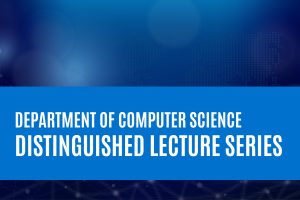
Refreshments are available starting at 10:30 a.m. The seminar will begin at 10:45 a.m.
Abstract
Cooperation through safe and trustworthy communication and interaction is fundamental to how human teams accomplish complex tasks. Yet, despite significant—and sometimes revolutionary—advances in AI, we have barely begun to unlock the potential of safe, cooperative AI. This may stem from our limited understanding of how multimodal, large-scale AI models function; the one-sided nature of contemporary, fully-supervised AI approaches; or social concerns about human-AI collaboration. In this talk, Jason Corso will delve into these layers of inquiry, beginning with a principled exploration of what the embeddings in large-scale foundation models reveal about the underlying problem and data, including new results disentangling sample-size from Bayes error and decision-boundary complexity. He will then introduce the concept of the human collaborator as a “hazy oracle”—a fallible partner rather than an omniscient information source—and establish a framework for modeling human-supplied error during collaboration. Building on these foundational insights, Corso will conclude with applications of these ideas to foster safe and effective human-AI collaboration in the health sciences.
Speaker Biography
Jason Corso is a professor of electrical engineering and computer science and robotics at the University of Michigan and a co-founder of and chief scientist at the AI startup Voxel51. Corso received his PhD and MSE degrees in computer science at the Johns Hopkins University in 2005 and 2002, respectively, and a BS degree in computer science with honors from Loyola College in Maryland in 2000. He is the recipient of a departmental 2018 Outstanding Achievement Award, a 2015 Google Faculty Research Award 2015, a 2010 Department of Defense Army Research Office Young Investigator Award, a 2009 NSF CAREER Award, and a 2011 University at Buffalo’s Exceptional Scholar Award for Young Investigators. In 2009 he became a member of DARPA’s Computer Science Study Group, while in 2003 he received a Link Foundation Fellowship in Advanced Simulation and Training. Corso has authored more than 150 peer-reviewed papers and hundreds of thousands of lines of open-source code on topics including computer vision, robotics, data science, machine learning, AI, and general computing. He is a member of the Association for the Advancement of Artificial Intelligence, the ACM, and the Mathematical Association of America, and is a senior member of the Institute of Electrical and Electronics Engineers.